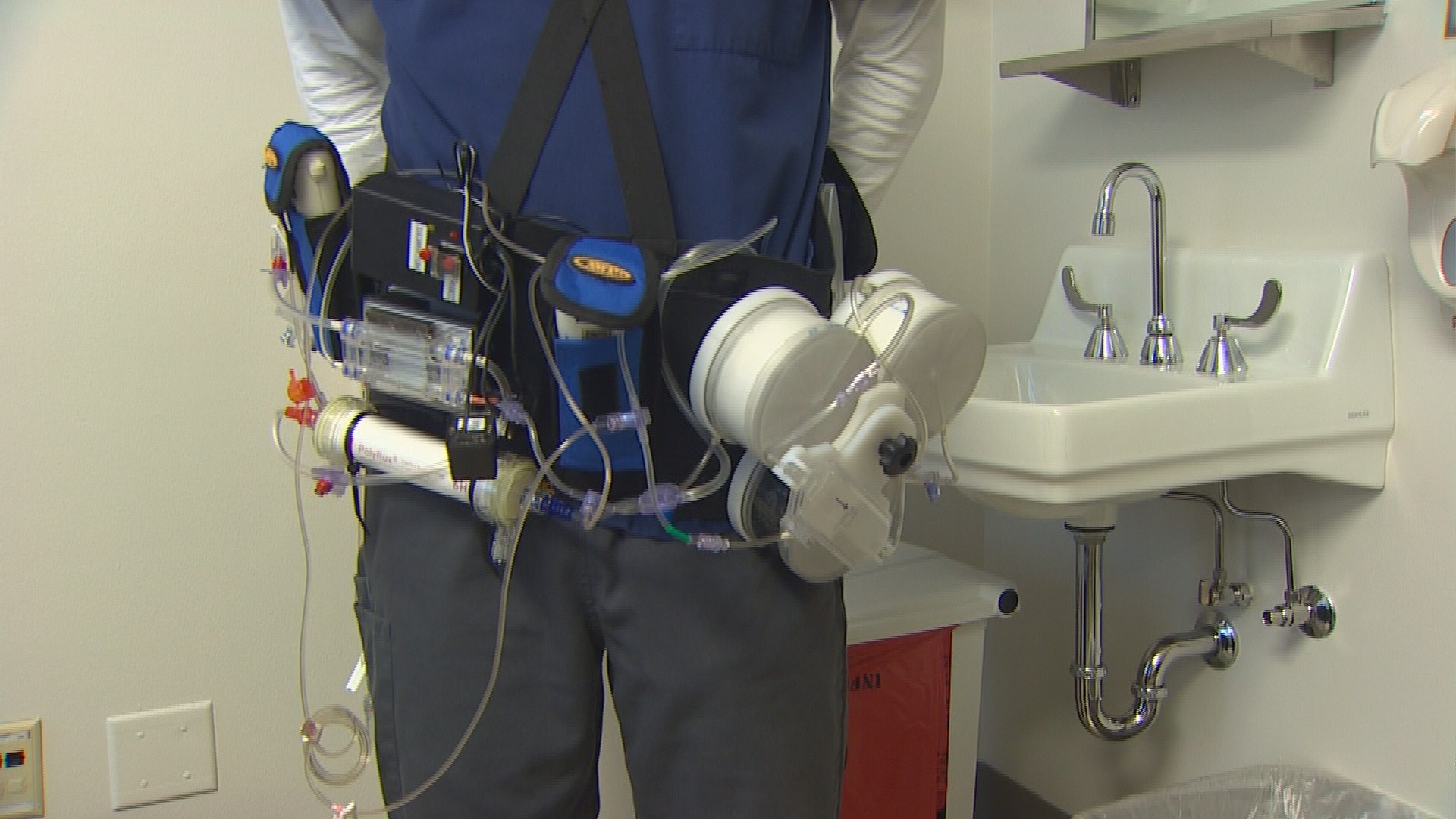SEATTLE – A medical breakthrough aims to transform the lives of millions of people living with kidney disease.
The clinical trial and research on the Wearable Artificial Kidney (WAK) is happening at Seattle's University of Washington Kidney Institute Research. The inventors and UW Kidney researchers just got the green light from the Food and Drug Administration to launch the first clinical trial in Seattle.
The miniaturized, battery-powered dialysis machine straps on like a tool belt, filtering the blood of people whose kidneys aren't functioning properly. Patients would no longer have to be tethered to a huge dialysis machine three times a week for hours at a time.
The prototype weighs 10 pounds, but doctors are hopeful the final version will be lighter and even smaller.
UW researchers and inventors believe the WAK could be a game-changer.
"First, the freedom of movement. When you are hooked up to 300 pound machine, hours on end, it's like doing time. That's how the patient feels. Second thing, freedom to eat and drink," said Dr. Victor Gura, inventor of the WAK.
If this clinical trial works, doctors say it could have a dramatic impact, and effect millions of patients. The CDC estimates more than 20 million people in the U.S. are dealing with some type of chronic kidney disease.
"Right now the big questions are will this work, will it perform, will it be safe and how effective will it be removing excess fluid and toxins for people who receive dialysis therapy," said Dr. Jonathan Himmelfarb with UW Kidney Institute Research.
Dr. Gura and researchers have been working on the WAK for 13 years and say funding has been the biggest stumbling block. But now, with the FDA's approval, the goal is to roll out the clinical trial in Seattle this fall.


